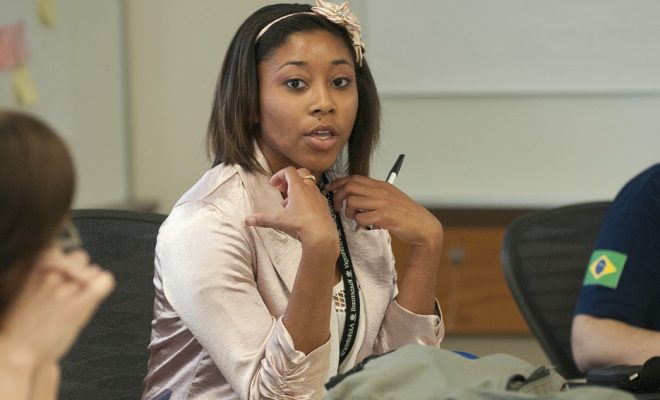5 Strategies to Unlock Your Students’ Potential

Today, a reader sent me an email that inquired about strategies that can be used to unlock student potential. Below you will find several of my thoughts on the subject.
1. Interest Inventories
One of the biggest strategies to unlocking students’ potential, passions, interests, and talents is to “get to know” your students. Find out what they like and don’t like. Form a relationship with each student. Not only will this help with your classroom management plan, but will allow you to find out how each child learns best. At the beginning of the school year, present each student with an interest inventory. This simple task can be accomplished in every grade-level and modified to fit the age group of children. In assessing the results, the teacher can better understand the students, and incorporate their interests. If a student is passionate about the content, their success rate will be greater. In her much heralded TED Talk Rita Pierson does an excellent job at explaining the importance of building relationships saying, “kids don’t learn from people they don’t like.”
2. What’s Their Learning Style?
Along with many “get to know you” activities at the beginning of the school year, each student should also complete a learning styles inventory. This can be done online, or modified for specific age ranges. By understanding the way each child learns, they can be taught through their unique style. Does the child love to read maps and charts? Do they like working with their hands? Also, finding the subjects and activities that interest the child enables them to be successful in the classroom. It encourages and excites them to know they have the skills to complete any task thrown their way.
3. Give Them a Choice
Once you know your students and have set expectations and guidelines, give the students options and choices. Give them a sense of empowerment and pride in their learning. Let them take ownership over it. Letting students choose the way they want to show their skills, creates amazing outcomes. If it is a task they are interested in and they choose, they are more likely to be successful, excited, passionate, and present an extraordinary performance.
4. Project-Based Learning or STEM/STEAM
One of the best ways to see what students are capable of, and allow their true creativity to shine is through Project-Based Learning. Not only does it allow students to think critically and create extraordinary projects, it involves so much more than that. They have to research, learn, experiment, create, and fully understand every component of the topic. PBL consumes all subject areas with one project, and gives the students a chance to unlock their true potential and expertise. STEM and STEAM are along the similar path as Project-Based Learning. These concepts also allow the students to use 21st century skills and learning to complete projects while focusing on individualized categories.
5. Engagement Strategies
Having students actively engaged in lessons creates a sense of ownership, and they are more willing to participate when they are engaged. It could be as simple as choosing partners or groups in a fun and creative way to an interactive quiz game online. There are an unlimited amount of engagement strategies that can easily be incorporated into the classroom. The way the lesson is taught and assessed can help unlock the students’ passion for learning. Discovering new and exciting strategies for engagement is always an exciting thing to do. It’s fun for the teacher to shake things up, and the students love it!
What did I miss?






